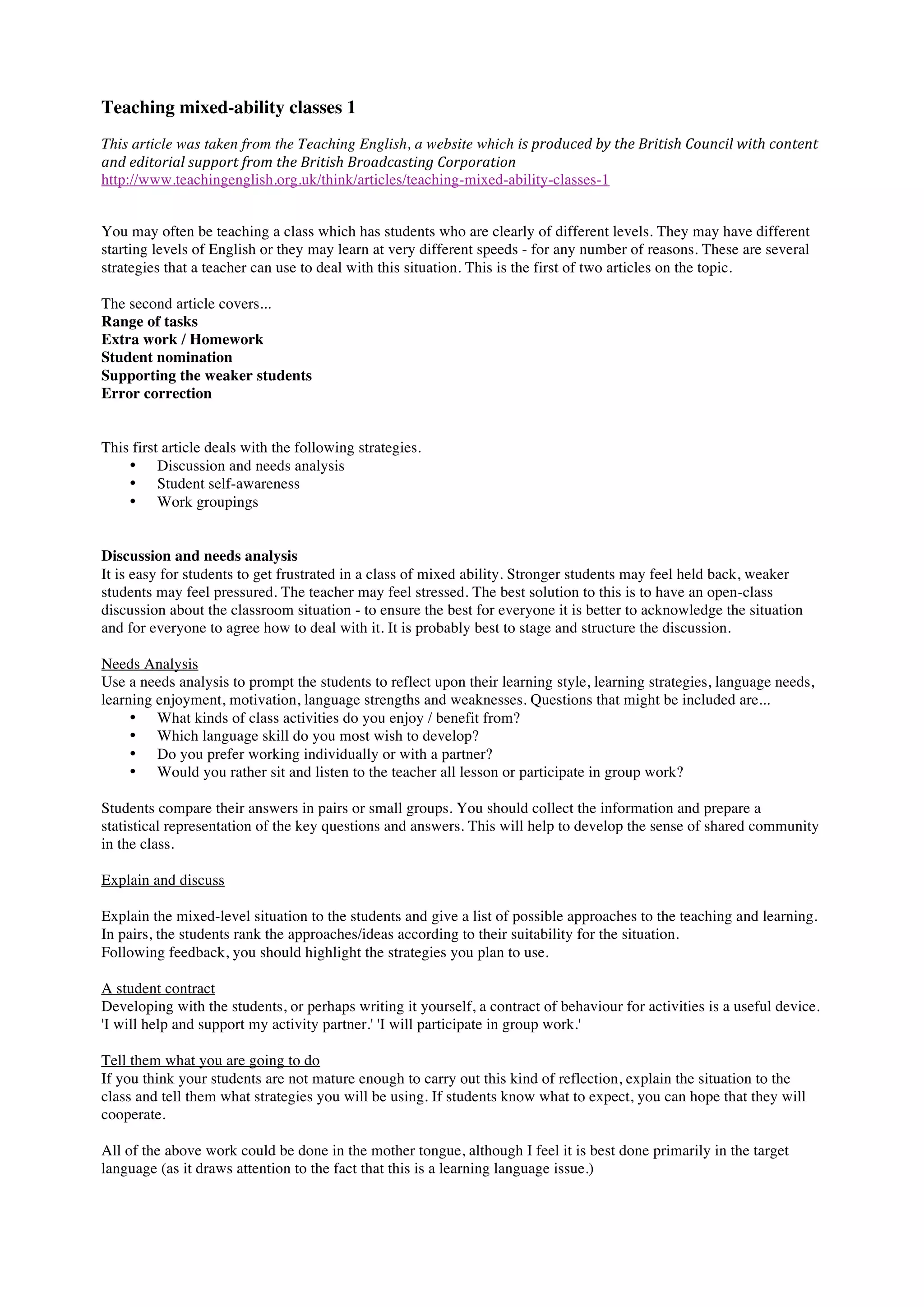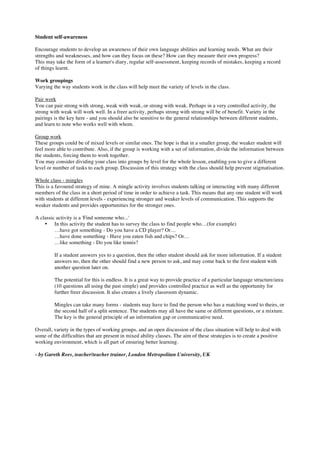The document discusses strategies for teaching mixed-ability English language classes. It recommends having an open discussion with students about the range of abilities in the class. The teacher should also do a needs analysis to understand students' learning styles and preferences. Students can be grouped in different ways for different activities, such as pairing strong students with weak students or grouping by similar ability levels. Mingles, where students interact briefly with many classmates, expose all students to a variety of ability levels. The goal is to create a positive environment where all students can learn effectively.

